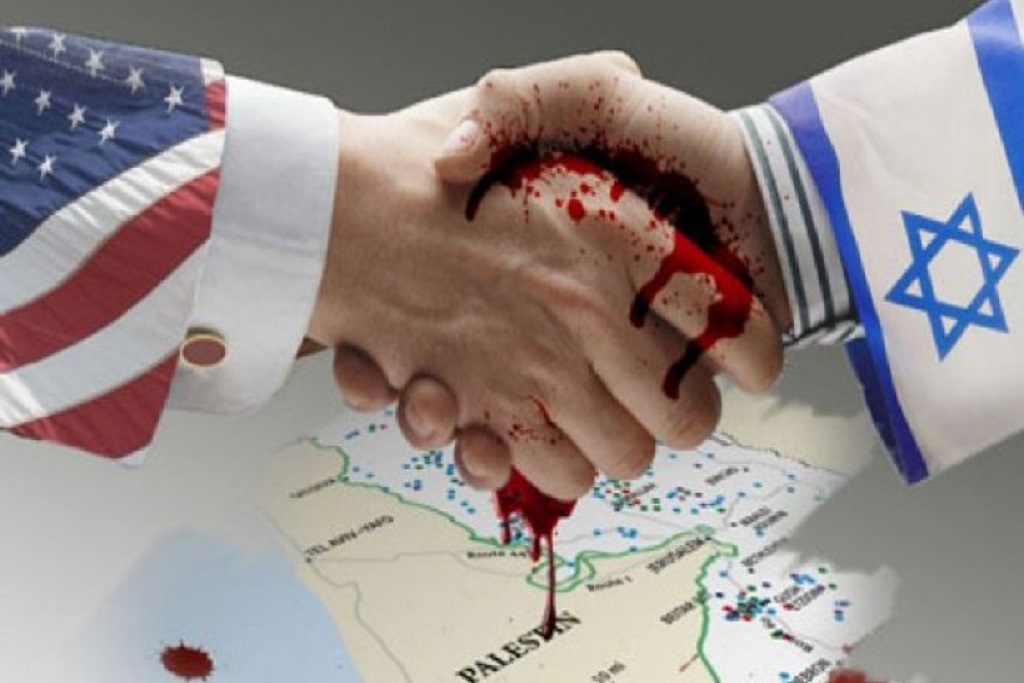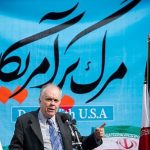Faraan Zionist Research Base; In 1962, US President John F. Kennedy [1] told Israeli Prime, Minister Golda Meir [2]: “The United States has a special relationship with Israel that, on a global scale, can only be compared to the special relationship between the United States and Britain.” Fifteen years later, Jimmy Carter [3] repeated the same view: “We have a special relationship with Israel.” The special ties of the United States with the Zionist regime can be seen in the extent and dimensions of US support for this fake regime.
On May 14, 1948, based on a UN vote, the Zionists declared Israel’s independence with the support and approval of the United States. Surprisingly enough, eleven minutes after the new state declared its independence, the United States issued an official statement recognizing Israel, thus, becoming the first country in the world to recognize its existence. As the apex of the American diplomatic support for the Jewish state since the inception of the Zionist movement, this matter, laid the foundation for wider and deeper US support for Israel; the same thing that has been later on referred to as the ‘special relations’.
The US support for Israel in the post-regime period can be portrayed in two ways: the US government’s assistance to Israel and the support of the American people and public opinion for that regime. This section will focus on US assistance to Israel.
US Economic – Financial Aid to Israel
From the inception of Israel until the early 1960s, the economic aid took the greatest share of the US aid to this regime. From 1949 to 1965, Israel received about $ 63 million in annual aid, whereby, more than 95 percent was in the form of economic and food aid.
A great portion of these financial aids were aids that Israel did not need to repay. Since 1984, in order to reduce the pressure on the Israeli economy to repay many of the loans it has received, not only did the United States decided to forgive Israel, but also preferred to provide more non-repayable financial aids.
From 1985 onwards, the United States begun providing $ 1.3 billion in annual grants to Israel. Since 1998, the US economic aid to Israel has been reduced and its military aid increased. The United States provided a total of $ 324,135 million in economic assistance to Israel from 1949 to 2007.
US military aid to Israel
Even though during the 1940s and 1950s the US military aid to Israel was much lower in comparison to the economic aid, it increased from the 1970s onwards. Nonetheless, from the beginning, the US used to provide military aid to Israel – albeit indirectly.
In 1947, the United States embargoed arms shipments to Palestine and neighboring countries for fear of upsetting the balance of power in favor of the Arabs in the event of a war with Israel and to avoid a possible war between them. Nevertheless, the US financial aid to Israel provided the regime with its own needs. As Ben-Gurion [4] later on stated that the purchases of arms from Moscow and Paris were coordinated and supported by the Americans themselves: “Moscow and Paris demanded dollars from us, and that was only available in one country. We took a lot of dollars from the United States.”
From 1962, the military aid to Israel increased immensely and between the period of 1962 to 1976, it reached $ 5.9 billion. During this period, the military aid accounted for 75 percent of all the US aid to Israel. In total, from 1949 to 2007, the United States provided $ 64.856 million in military aid to Israel. The result of this aid – equipping Israel with the American state-of-the-art weapons – has turned Israel into a superior military force in the region.
Special Conditions and Benefits of US Assistance to Israel
In addition to the amount of these aids, what sets Israel apart from the other recipients of the US foreign aid, are the special privileges given to Israel in this regard. These advantages become even more significant when we consider that Israel is one of the modern industrial powers, which ranked 29th in the world in terms of per capita income in 2006. The gross domestic product of the Zionist regime and its small population is higher than the gross domestic product of countries such as Lebanon, Syria and Jordan.
Other statistics show that for every dollar the United States allocates to one person in Latin America and the Caribbean, it pays $ 214 to an Israeli. The United States, on the other hand, never helps the Arabs without paying heed to Israel.
Israel has always enjoyed the special assistance of the US Congress. While the Congress has consistently opposed the US aid to other countries and reduced their funding as much as possible, its support for the US aid has always remained.
In regards to the form of aid it receives, Israel has special advantages over the other recipients. The Zionist regime is the only recipient of US economic aid that does not have to answer for or explain how the money has been used.
Another unique advantage of Israel is that, although the recipients of the US military aid are usually required to spend the money received in the United States, the Congress has granted a special exemption to Israel. This exemption allows the regime to allocate about $ 1 out of every $ 4 of the US military aid to its defense industry. By this means, Israel does not have to spend all the funds received to buy military items from the United States.
Other than these, Israel has also enjoyed other merits, such as receiving loan guarantees from the US government, additional assistance following specific developments in the region, private assistance from the US citizens and NGOs, which in 2009 reached approximately $ 2 billion annually.
Source:
Rabet-e Vije Amrika va Israel: Pajuheshi dar barey-e pishineh, mahiyat va gostaresh in rabiteh, by Farhad Ataei, Zahra Aali, Quarterly Journal of Politics, edition. 42, Number 1, Bahar 1391.
[1] John F. Kennedy
[2] Golda Meir
[3] Jimmy Carter
[4] David Ben-Gurion










